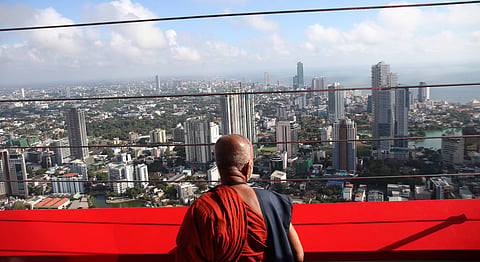China courts influence in Sri Lanka via the Buddhist clergy
Buddhist monks donating food to the poor should not be news. The concept of dana – giving to reduce attachment to worldly possessions – is considered central to Sri Lanka's Buddhist heritage. But lately things have been different. In July and December, when the head of the Malwatta chapter and other senior monks donated food items to the poor, it did make the news. So did dry-ration distribution to the poor in Kandy and Anuradhapura districts this January.
The fanfare was unusual but understandable. This was not dana in the Buddhist sense but politics in a charitable guise. The monks were not giving away their own possessions, they were acting as conduits for donations from China. The Faxian Charity Project, the centrepiece of this effort, concluded its spree of hand-outs in Kandy, with a ceremony at the Nelligala temple. Present was China's charge d'affaires in Sri Lanka, Hu Wei. In an interview with the local news website Sri Lanka Mirror, he warned against allowing the Dalai Lama to visit the island. He said he had spoken to senior prelates during his Kandy visit and "most of them know it very clearly that the Dalai Lama is not a pure monk and is trying to play another very negative role against China Sri Lanka relationship." The diplomat also denied China's role in holding up Sri Lanka's debt-restructuring talks, a vital step to securing a much-needed IMF bailout, and expressed the hope that the Faxian Charity Project would soon cover the entire country.

